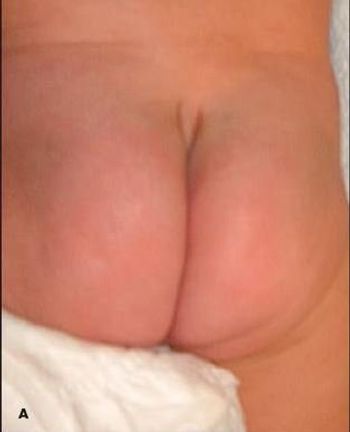
Deletion of one form of the protein targeted by lithium, which is used to treat bipolar disorder, causes congenital cardiac defects in developing mice, according to research published online Oct. 1 in the Journal of Clinical Investigation.

Deletion of one form of the protein targeted by lithium, which is used to treat bipolar disorder, causes congenital cardiac defects in developing mice, according to research published online Oct. 1 in the Journal of Clinical Investigation.

Adolescents with conduct disorder have higher basal levels of cortisol than their counterparts without the condition, but they secrete less of the hormone under stressful conditions, according to study findings published in the Oct. 1 issue of Biological Psychiatry.

Wheezing illnesses due to rhinovirus infection are a strong predictor of developing asthma in high-risk children, according to a report in the Oct. 1 issue of the American Journal of Respiratory and Critical Care Medicine.

The US Food and Drug Administration (FDA) approved a test developed by the Centers for Disease Control and Prevention (CDC) used to diagnose influenza, including the H5N1 flu virus.

Questions answered about imaging, prophylaxis, and more in the diagnosis and management of acute UTI.

Study: A standardized physical therapy program may significantly reduce the prevalence of deformational plagiocephaly.

Study: The vast majory of stethescopes may carry bacteria.

Former Child Life Services Director Myra Fox recounts her experiences at Children's Hospital Boston.

Study: Should herpes simplex virus be considered in the differential diagnosis of neonatal fever and hypothermia?

Tic-Tong plastic tongue depressors by Ceplast Medical Devices come with artificial tutti-frutti flavor.

Created by EMD Serono, Inc., Easypod is an everyday delivery device for growth hormone.

Links to useful Web sites about child life programs.

Links to useful Web sites about child life services.

This article reviews major concepts contained in the AAP's 2007 autism spectrum disorders guidelines and toolkit, including screening, evaluation, management, and medication options.

A description of 11 books for children with autism and autism spectrum disorders.

A 4-month-old infant is brought in due to raised hyperpigmented lesions around his shins.

Discussion of the new digital edition of Contemporary Pediatrics.

The Arkansas surgeon general testified about how his state is fighting the obesity epidemic.

A 4-month-old trauma patient is unresponsive after a falling one foot from his bed to the floor.

Two separate studies have outlined the dangers of drinking alcohol before age 15 and secondhand smoke at home, respectively.

When I was growing up in Brooklyn in the 1950s, kids started their preparations for Halloween after dinner on October 31. We would find an old mask, or make one out of a paper bag; wealthier kids might buy one. I would grab a pillowcase to hold my "loot" and take off. Neighbors would give us store-bought candy or homemade cookies or cupcakes. It didn't occur to anyone that an unwrapped, unsealed item could be dangerous. Older kids were the real danger: they would steal our goodies and often beat us up.

This 9-year-old girl has extensive psoriasis and is currently receiving narrowband UVB phototherapy for her body plaques. Her mother has insisted on covering her daughter's face during treatment and on having the girl use sunscreen on her face whenever she is outdoors to prevent premature aging.

Two-month-old boy with divot in the lower back, shown here with the gluteal crease relaxed (A) and spread (B). Infant is a product of an uncomplicated pregnancy and delivery. Nursery stay uneventful. Subsequent feeding and growth normal. Parents report no problems with urination or defecation.


Reports on medication research published in general news media often fail to disclose that the research received pharmaceutical company funding and frequently refer to drugs by brand name rather than using the generic name, according to an article published in the Oct. 1 issue of the Journal of the American Medical Association.

Excess testosterone exposure during pregnancy reduces the reproductive health of male offspring in sheep, according to a report first released online July 31, in advance of publication in an upcoming issue of Endocrinology.

The use of biventricular assist devices may be an effective method for sustaining small children awaiting heart transplantation, according to research published Sept. 30 in a supplement issue of Circulation: Journal of the American Heart Association.

A Government Accountability Office (GAO) report estimates that 6.5 million US children ages 2 to 18 enrolled in Medicaid have untreated tooth decay, according to Reuters.

Treatment patterns of psychotropic medication in children and adolescents vary widely between the United States, the Netherlands and Germany, according to an article in the Sept. 25 issue of Child and Adolescent Psychiatry and Mental Health.